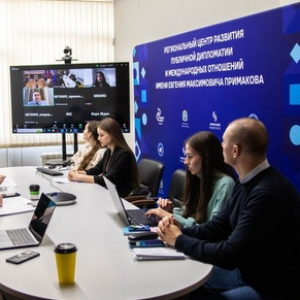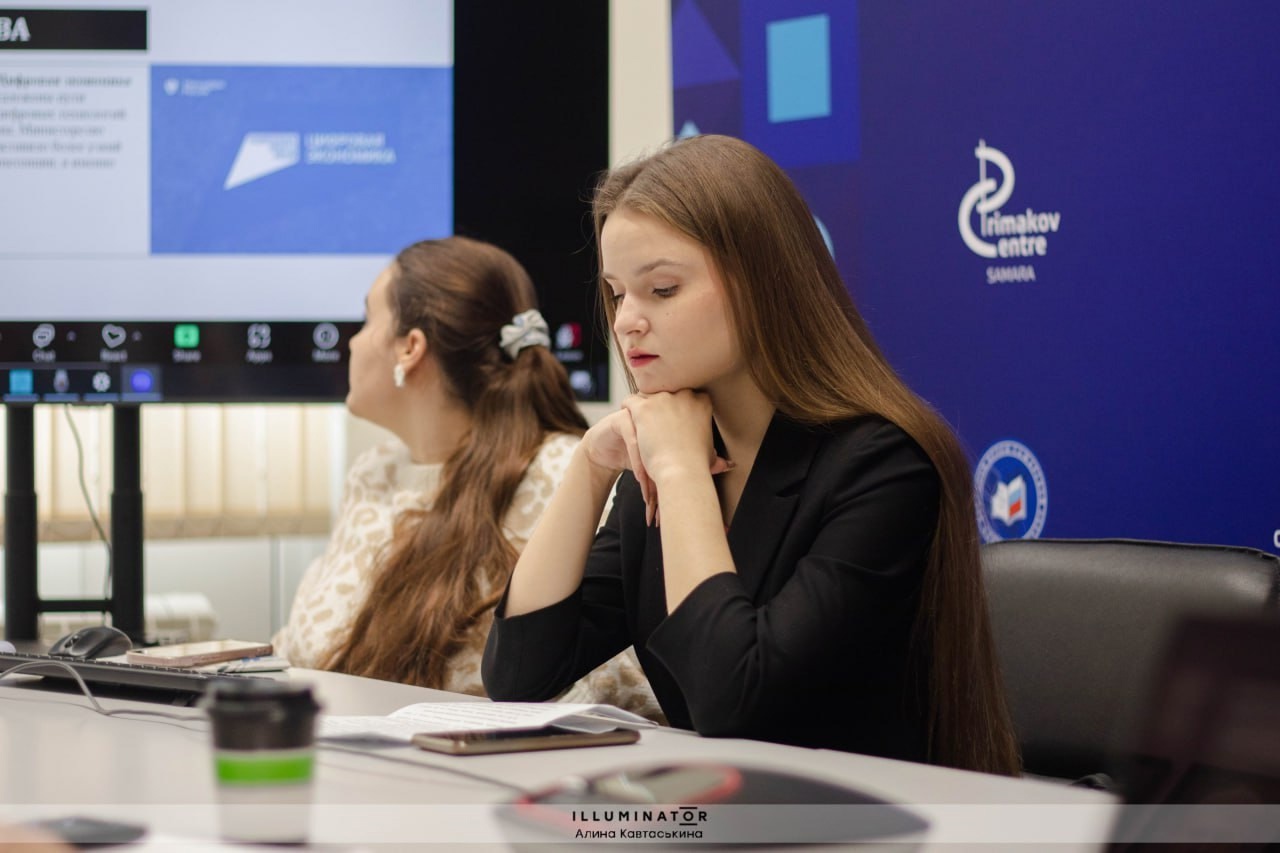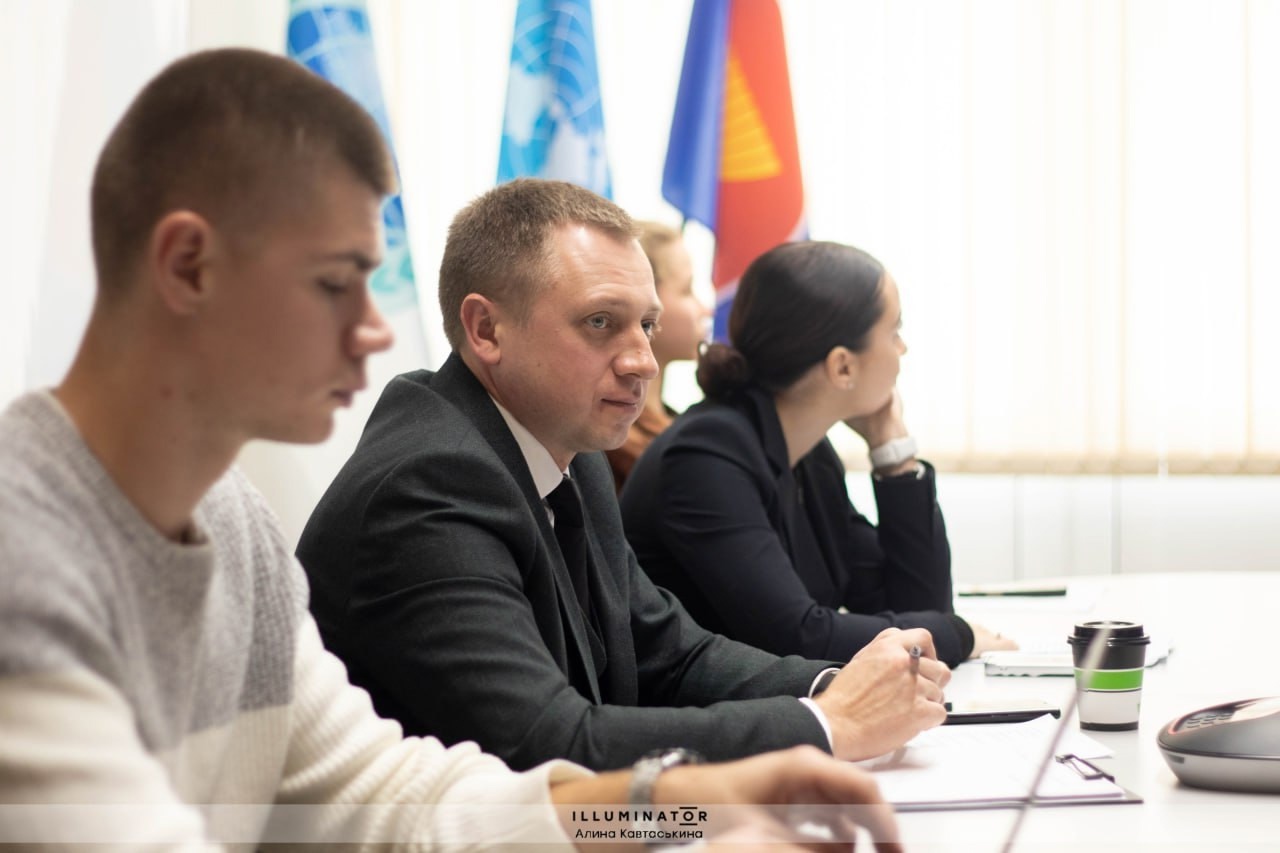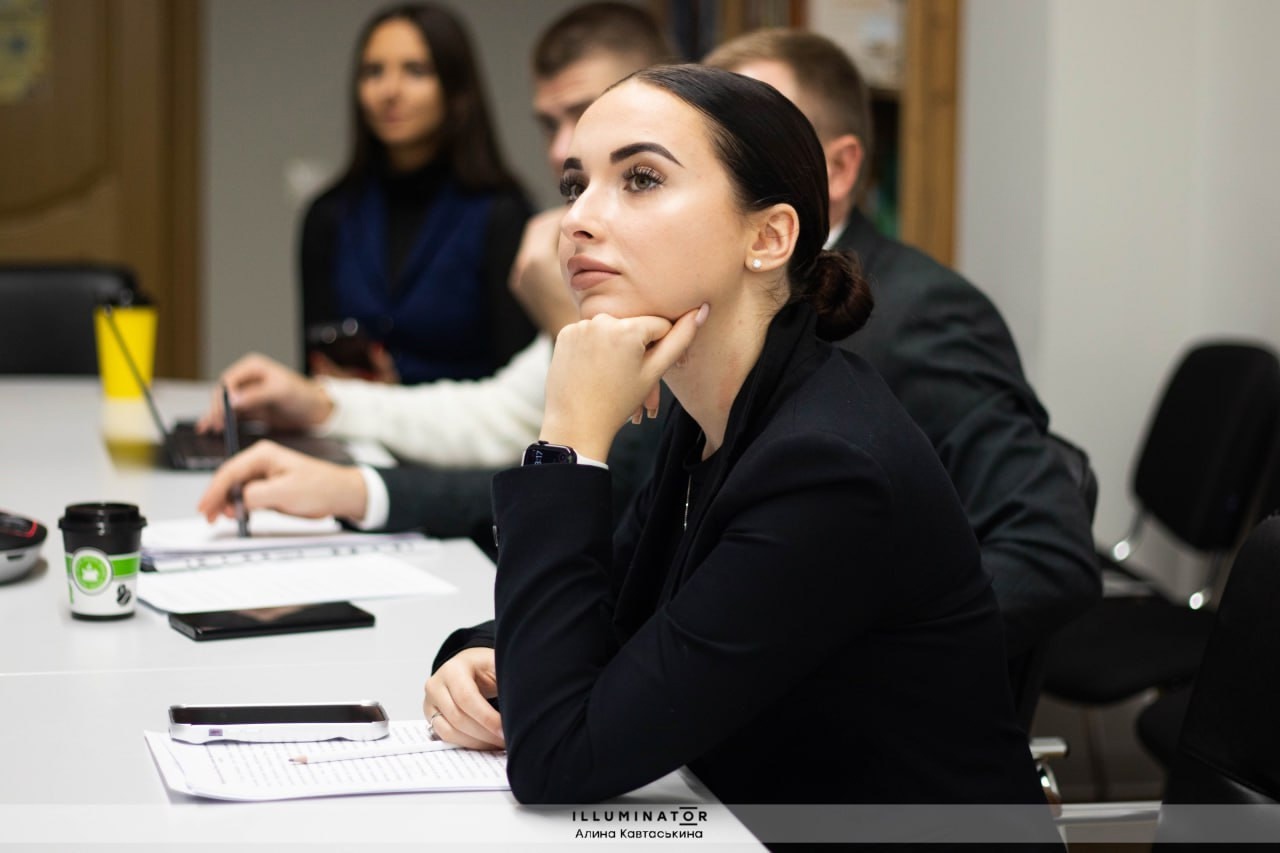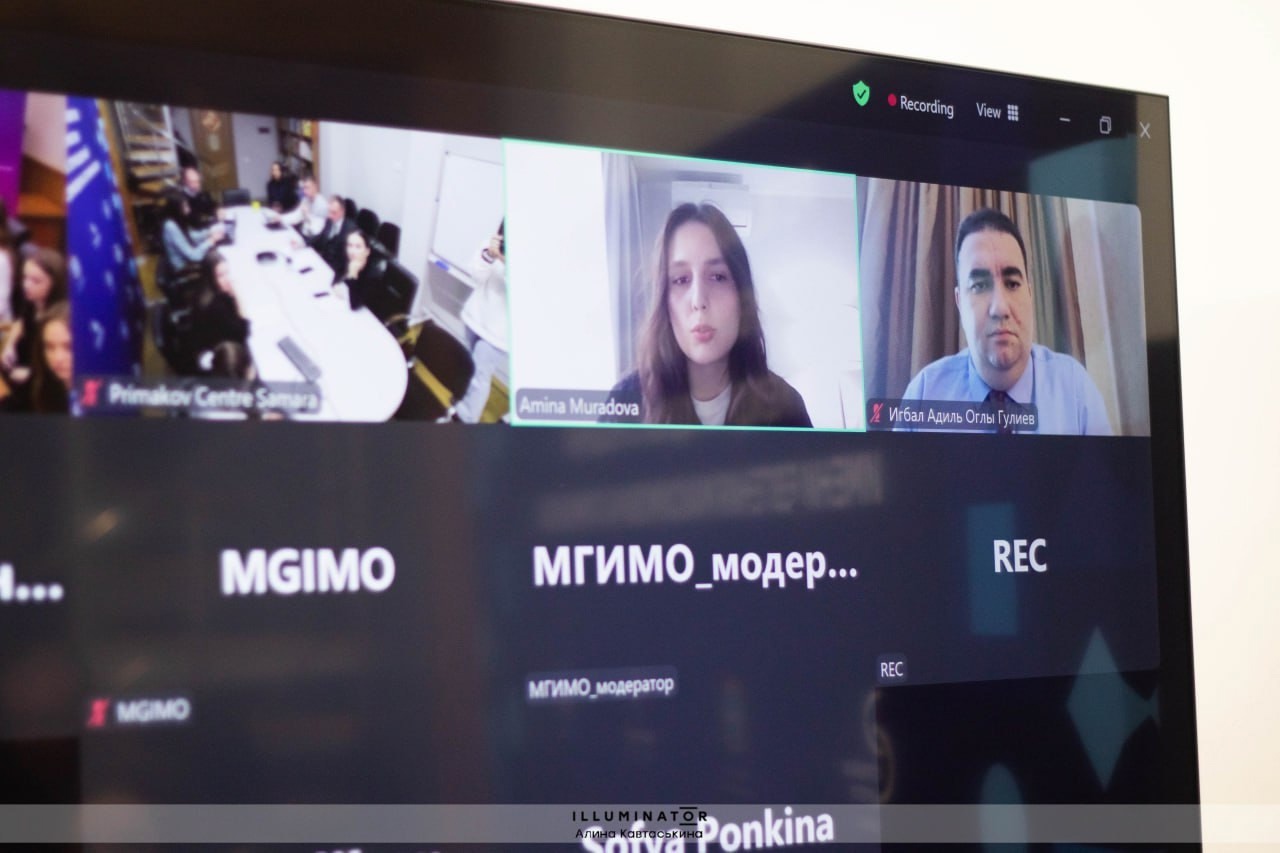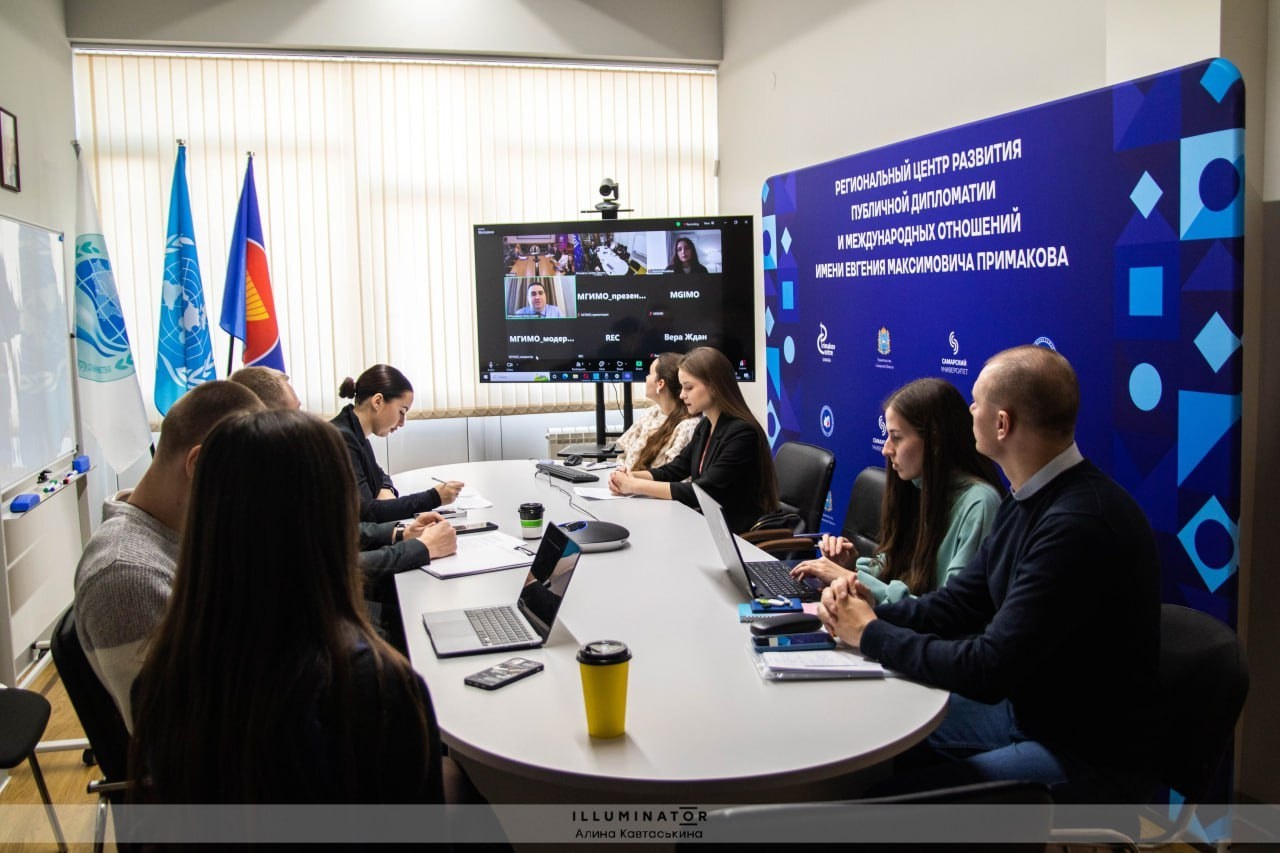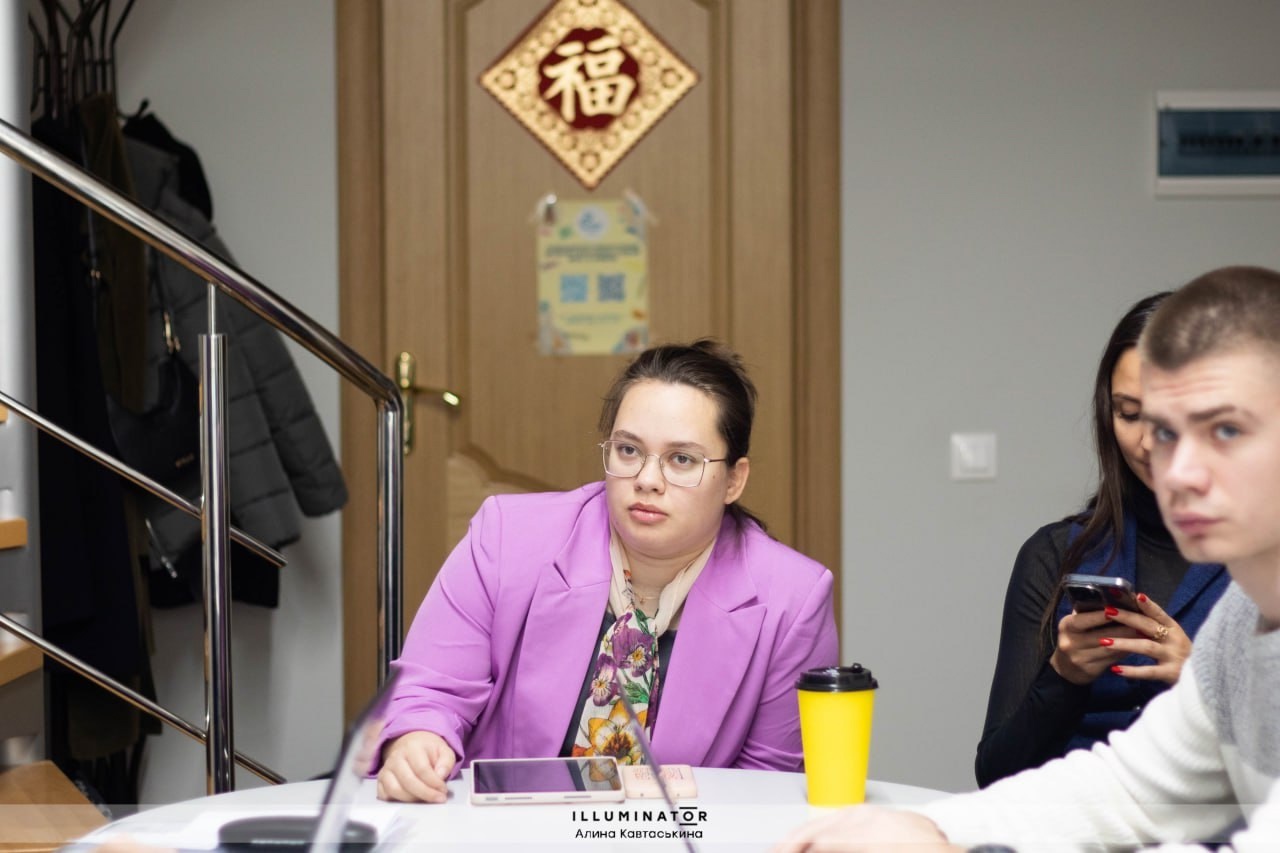On November 1, the Primakov Centre hosted the Round Table “Energy Policy and Digitalization”, organized jointly with MGIMO, the Ministry of Foreign Affairs of Russia and V. P. Ivannikov Institute of System Programming of the Russian Academy of Sciences, as part of the track “Current Trends in Digital Transformation of Energy Industry” of the 3rd International Research and Practice Conference “Digital International Relations 2024”.
Highlighting key issues and achievements in the field of digitalization of energy industry, experts and students addressed the participants.
The moderators were: I. A. Guliyev, Candidate of Economic Sciences, Associate Professor, Deputy Director of MGIMO’s International Institute of Energy Policy and Diplomacy; D. V. Khilov, Co-Chairman of the Samara Regional Branch of “Delovaya Rossiya”, owner of the Consulting Company “Stratosfera” in the city of Moscow.
The expert was Amina Muradova, a graduate of MGIMO’s MIEP (International Institute of Economics and Law), who has more than 3 years of experience in the field of business process automation in the oil industry.
Amina drew attention to significance of digitalization for the energy sector, noting that import substitution is one of the main tasks in terms of modern challenges. She also gave practical advice: develop outside the university, for being specialists in demand, as digitalization currently covers all aspects of professional life.
MGIMO students highlighted features of digitalization in the energy sector. Sofia Novikova spoke about the current trends of digitalization in the coal industry, including automation, data monitoring, introduction of artificial intelligence for forecasting, and the “smart mine” concept. Danila Sinyakov reviewed the philosophical approach to digitalization, recalling about Pythagoras to teach that the world could be understood through numbers. He noted that digitalization of the Russian energy sector helped companies optimize management and reduce costs, generating a new philosophy for technological development. Anastasia Kulaeva considered the issues of legal regulation of digitalization, mentioning that many technologies remained outside the legal field.
Samara University’s students told the audience about developing the energy industry in various countries.
There were interesting themes related to the energy industry in the Finnish energy sector (Nikita Khomentov, a student of the Faculty of Law), the digital revolution in China (Alina Kustova, a student of the Faculty of History, Major “International Relations”), digitalization of the Fuel and Energy Complex of Kazakhstan (Aleksandra Nesterova, a student of the Faculty of History, Major “International Relations”), as well as the role of digital technologies in improving efficiency and sustainability of Thailand’s energy sector (Anastasia Fatkhutdinova, a student of the Faculty of History, Major “International Relations”). These themes stressed importance of sharing experiences, for the purpose of developing effective energy solutions at the global level.
Text: Guzyalia Shakurova, Monitor of Group 5201-460401D
Photo: Alina Kavtaskina, Monitor of Group 5201-420302D
